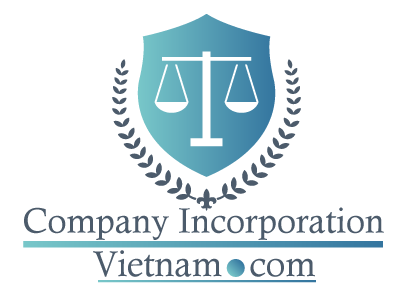A joint stock company (JSC) in Vietnam is a type of business organization in which the capital is divided into shares and owned by shareholders. In Vietnam, a JSC is governed by the Law on Enterprises and must have at least three shareholders and a reasonable share capital, depending on the business lines. If you are planning to open a joint stock company in Vietnam, our company formation agents can assist you.
Joint stock company structure in Vietnam
The organizational management structure of a joint stock company (JSC) in Vietnam typically includes the following:
- Shareholders’ General Meeting: This is the highest decision-making body of the JSC, consisting of all shareholders. It meets annually to elect the Board of Directors and discuss important matters related to the company;
- Board of Directors: This is the executive body of the JSC, responsible for managing the company’s operations and making strategic decisions. It is elected by the shareholders’ general meeting and typically consists of between three and eleven members. The Board of Directors appoints a Chairman, a Vice Chairman, and a CEO to manage the day-to-day operations of the company;
- Supervisory Board: This is a separate body from the Board of Directors, responsible for monitoring the Board’s performance and ensuring that the company complies with legal and ethical standards. It consists of between three and five members, who are appointed by the shareholders’ general meeting;
- CEO (Chief Executive Officer): This is the top executive of the JSC, responsible for managing the company’s day-to-day operations. The CEO is appointed by the Board of Directors and is typically the highest-ranking employee of the company;
- Departments: Under the CEO, there may be various departments responsible for different functions of the company, such as finance, marketing, human resources, and operations. The heads of these departments report directly to the CEO.
The organizational management structure of a JSC in Vietnam is designed to ensure that the company is run efficiently and ethically, with appropriate checks and balances in place to prevent abuses of power or conflicts of interest. If you are interested in starting a joint stock company in Vietnam, the services of our company incorporation consultants are at your disposal. They can also offer you detailed information about the organizational management structure of a Vietnamese JSC.
Besides JSC, you can also consult our agents if you are interested in opening a branch in Vietnam.
Steps to register a joint stock company in Vietnam
To set up a joint stock company in Vietnam, you are required to follow the steps mentioned below, or you can also get in touch with our Vietnamese specialists for their incorporation services:
- Obtain an Investment Registration Certificate from the local Department of Planning and Investment;
- Register the company with the Business Registration Office of the same department;
- Obtain a tax code and pay registration fees;
- Apply for a seal and open a bank account;
- Hold the first meeting of the Board of Directors to appoint company executives and adopt company bylaws.
The time frame for company incorporation in Vietnam is 30-45 working days, a little longer than in other countries, such as New Zealand, where opening a company lasts only one week.
After registration, the JSC must also comply with various ongoing legal requirements, such as filing tax returns and financial reports, holding annual shareholder meetings, and maintaining corporate records. If you need any help with the company’s accounting, you are recommended to get in touch with our accountants in Vietnam.
Taxes in Vietnam
In Vietnam, taxation is regulated by the Law on Tax Administration and various other related laws and regulations. The main types of taxes imposed on businesses and individuals in Vietnam include:
- Corporate Income Tax (CIT): This is a tax on the profits of enterprises and organizations operating in Vietnam, with a standard rate of 20%. However, certain types of businesses may be eligible for lower rates or exemptions.
- Value Added Tax (VAT): This is a tax on the value added at each stage of production and distribution of goods and services, with a standard rate of 10%. Certain goods and services may be subject to a reduced rate of 5% or exempted from VAT.
- Personal Income Tax (PIT): This is a tax on the income earned by individuals in Vietnam, including both Vietnamese and foreign nationals. The tax rate varies depending on the level of income, with a maximum rate of 35%.
- Special Consumption Tax (SCT): This is a tax on the production or import of certain luxury goods and products that are considered harmful to health or the environment, such as alcohol, tobacco, and automobiles.
- Import and Export Duties: These are taxes imposed on the import and export of goods, with rates varying depending on the type of product and the country of origin or destination.
In addition to these taxes, businesses may also be subject to other charges, such as land use and environmental protection fees. It is important for businesses and individuals to comply with tax regulations if they are interested in setting up a joint stock company in Vietnam. As, taxation in this country can be complex, so it is recommended to consult with our professional tax advisor for specific guidance.
Furthermore, if you need assistance regarding opening a joint stock company in Vietnam, the services of our company formation specialists are at your disposal. Please contact our agents for details.
Our agents can also help you with acquiring a virtual office in Vietnam.


